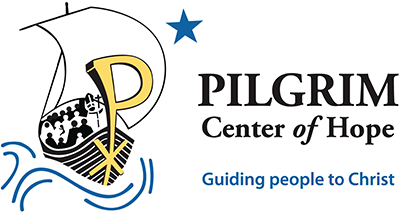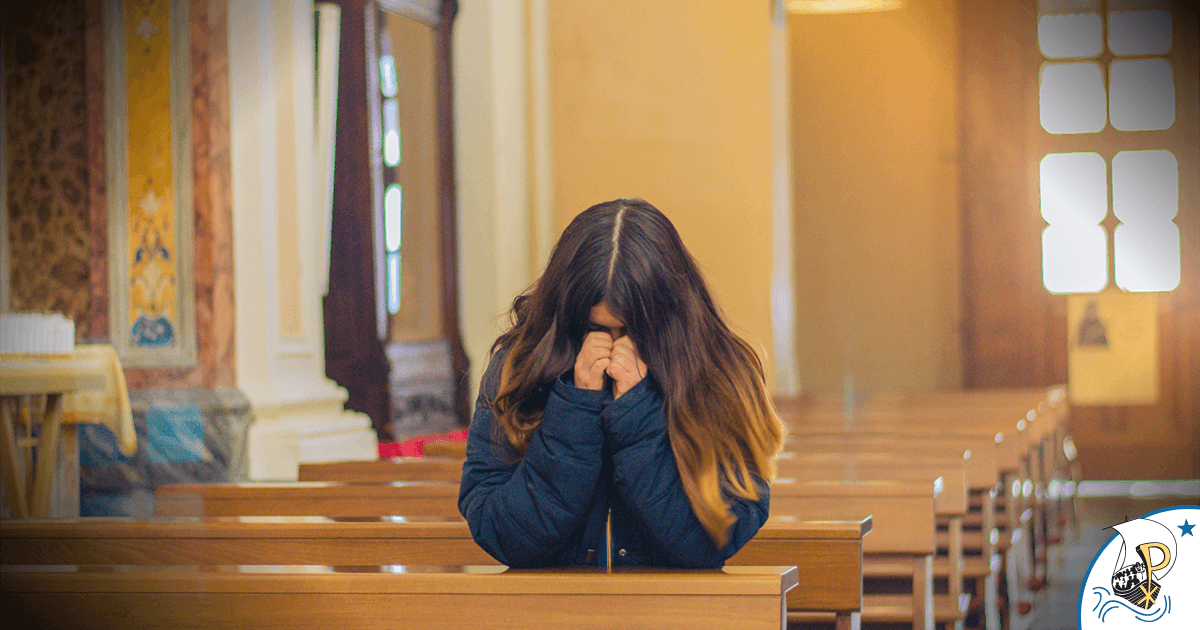Sometimes, we struggle to find the words to pray; when we’re tired, upset, depressed, feeling far from God... or when our own words otherwise seem inadequate. Thankfully, Jesus knew our human experience, and he taught us a prayer filled with a depth which we may take for granted.
Introduction to the Lord’s Prayer
In Jesus’ language, the first word of ‘The Lord’s Prayer’ would’ve been similar to perhaps the first word he spoke as a baby crying out to Saint Joseph for attention – like many of us who babble “DaDa” or “Aba.” In Aramaic, Jesus taught his disciples to begin by addressing Ab-oun; “Dad / Daddy / Father, of ours.” In this way, he teaches that prayer begins with a God who is personally close and familiar to each and all of us.
Praising God’s Name
The next words of the Lord’s Prayer are good news especially when we feel weak or powerless, reminding us that this close and caring Father is also the Almighty; “who is in heaven, glorified be thy name.” If we pray these words by rote, we miss that we are praising God by them, and we miss their comforting message; what could we fear if our loving God is also above all things?
Such a thought can give us the confidence to next pray, “Thy kingdom come, thy will be done on earth as it is in heaven.”
Seeking God’s Will
Do I really want God’s will to be done? Through my spiritual journey, I’ve realized that the only times I’m not excited to pray for God’s will are when I’m not convinced that God’s will is also the best thing for me. Our spiritual Enemy has capitalized on this uncertainty even from the beginning of time, accusing God of causing the havoc and harm we see in the world.
Jesus simply reassured his listeners by asking,
“Which one of you would hand his son a stone when he asks for a loaf of bread, or a snake when he asks for a fish? If you who are evil know how to give good gifts to your children, how much more will your heavenly Father give good things to those who ask him?” (Matthew 7:11)
Asking for Daily Needs
Now that we have prayed for our Father’s will, we ask for good gifts: “Give us today our daily bread.” Bread is a traditional staple of life. The act of ‘breaking bread’ is a communal act; thus we need not only ourselves and our own essentials, but also “us” – our community. Through this prayer, we petition for the needs of all our brothers and sisters. In today’s individualistic culture, the Lord’s Prayer challenges us to advocate for one another.
Jesus also taught,
“I am the living bread that came down from heaven; whoever eats this bread will live forever; and the bread that I will give is my flesh for the life of the world” (John 6:51).
We need more than physical bread to live abundantly, and through Jesus and the Church he established, God provides us with what we need for spiritual life, eternally.
Forgiveness and Mercy
“Forgive us our debts, as we forgive our debtors.” This line especially serves as an examination of conscience for me each time I pray it, because Jesus taught that we will not be forgiven if we do not forgive (cf. Matthew 6:15). Further, Jesus calls us to
“be merciful even as your Father is merciful” (Luke 6:36).
Forgiveness does not mean dismissing offenses without justice, nor does it mean that our pain is gone. It is a decision to unbind our heart from the offense and entrust it to God. Mercy, misericordia, means recognizing the offender’s misery with our heart and having compassion for their weakness, just as we recognize our own miseries and weaknesses.
This can be difficult, but the Lord’s Prayer is one way of asking God for the grace to forgive, because forgiveness and mercy are impossible without God. These acts free us from past wounds and open us to healing.
Protection from Temptation
“And do not cause us to enter into trials, but deliver us from evil.” We know that temptations and challenges are ahead of us in this life, so we ask for deliverance from them. Jesus himself prayed this in the Garden of Gethsemane before his arrest and torturous death, feeling the stress of what lay ahead so much that his sweat became bloody;
“Father, if it is possible, let this chalice pass from me. Yet not my will but yours be done” (Matthew 26:39).
In times of fear and darkness, Jesus teaches us by his words and actions to have confidence in our loving God, who protects and provides, sees to justice and mercy, and walks before us in every trial, capable of transforming even death into eternal life.
Originally written by Pilgrim Center of Hope for Today's Catholic newspaper.

Angela Sealana is the Media Coordinator for Pilgrim Center of Hope, having served at the apostolate since 2010. She also serves on the PCH Speaker Team.
Answering Christ’s call, Pilgrim Center of Hope guides people to encounter Him so as to live in hope, as pilgrims in daily life. See what’s happening & let us journey with you! Visit PilgrimCenterOfHope.org.

